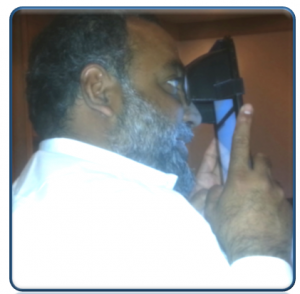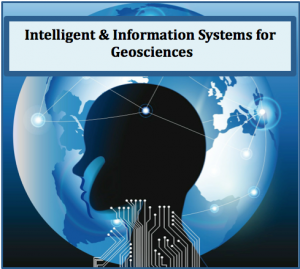The following blog post is contributed by Dr. Yolanda Gil from the Information Sciences Institute, University of Southern California and Dr. Suzanne A Pierce from the Texas Advanced Computing Center (TACC) and Jackson School of Geosciences of The University of Texas at Austin, the co-chairs of the workshop.
A workshop on “Intelligent Systems Research to Support Geosciences and the EarthCube Mission” was held last month at the National Science Foundation. The workshop was supported by a joint grant from the Directorate for Computer and Information Science and Engineering and the Directorate for Geosciences of the National Science Foundation.
The goal of the workshop was to formulate a research agenda for intelligent systems that will result in fundamental new capabilities for understanding the Earth system. In geosciences, the workshop covered requirements from Earth, ocean, polar, and atmospheric and spatial sciences. In intelligent systems, the workshop included participation from fields such as information integration, machine learning, knowledge representation, semantics and metadata, geospatial computing, robotics, visualization, and augmented reality. The workshop builds on the momentum of the NSF EarthCube initiative for geosciences and was informed by ongoing cyberinfrastructure efforts.
There have been several recent events and opportunities for collaboration between geoscience and intelligent systems researchers. Those events tend to be focused on particular areas, such as climate informatics or spatial computing. A prior NSF workshop on Discovery Informatics focused on intelligent systems for scientific research was very relevant, but not targeted to geosciences.
Workshop participants highlighted the many aspects of geosciences research that present challenges for intelligent systems. Geoscience data is interesting because it tends to be uncertain, intermittent, sparse, multi-resolution, and multi-scale. Data is often spatio-temporal in nature, has small sample sizes and high dimensionality, and is highly heterogeneous. A unique characteristic of geosciences research is its process-centered phenomena, studying combinations of physical, geological, chemical, biological, and ecological factors. Our understanding of such phenomena is contextualized by rich background knowledge that must be incorporated into the analysis of the data. Processes and objects have often amorphous spatio-temporal boundaries. They are so complex that visual and manipulation interfaces are key to understanding data and models. There is often a lack of ground truth, which makes evaluation and testing of models difficult. Addressing these challenges would benefit all areas of geosciences.

Seeing is Believing- Dr. Sai Ravela, a computational Earth Science researcher from Massachusetts Institute of Technology tries out an augmented reality application presented by Dr. David Krum from the Institute of Creative Technologies at the University of Southern California during the workshop.
In order to meet these challenges, workshop participants agreed that intelligent systems must incorporate existing scientific knowledge and the user’s context. This would enable novel forms of reasoning and learning about geosciences data. This poses novel open problems for intelligent systems researchers. In knowledge representation, capturing scientific knowledge in the form of physical, geological, chemical, biological, and ecological processes will push the limits of the state of the art. In sensing and robotics, that scientific knowledge should be used to guide what data needs to be prioritized and collected. In information integration, all those processes need to form a “geophysical system of systems” where all data and knowledge are interconnected. In machine learning, algorithms need to be enriched with models of the relevant physical, geological, chemical, biological, and ecological processes. Any interfaces and interaction modalities must be guided by a knowledge-rich user model that provides context for the interactions. All these areas cannot be investigated separately as they are interdependent. For example, improvements in sensing will facilitate learning, broader representations will facilitate information integration, and richer learning algorithms will lead to better interfaces.
Participants produced important recommendations as a result of the workshop. One important set of recommendations is community building through sustained multi-year collaborations. Another set of recommendations concerned the education of computer scientists and geoscientists in each other’s fields, from basic vocabulary to advanced techniques, primarily through joint projects and student exchanges. Finally, participants agreed that keeping geosciences and intelligent systems research separate is problematic, and direct partnerships that are ongoing and cooperative will result in innovations in both areas.
The workshop resulted in a number of follow on events and activities. A final report summarizing the workshop discussions will be available in July from the workshop web site.










